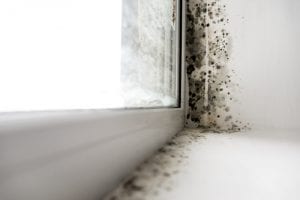What you need to know about toxic mold
 Mold is a relatively common occurrence in homes and buildings, especially in dark, damp areas such as basements and bathrooms. Generally, the presence of mold is harmless, if unsightly. But certain types of mold, if present in large enough amounts, can pose a health risk to people living or working in that building. This could give rise to a premises liability or workers’ compensation case.
Mold is a relatively common occurrence in homes and buildings, especially in dark, damp areas such as basements and bathrooms. Generally, the presence of mold is harmless, if unsightly. But certain types of mold, if present in large enough amounts, can pose a health risk to people living or working in that building. This could give rise to a premises liability or workers’ compensation case.
What type of mold is harmful?
Chances are, you’ve spotted at least a tiny bit of mold in your own bathroom. This won’t cause you any harm. But two well-known types of mold can potentially be dangerous if they are present in high concentrations.
The first is Stachybotrys chartarum, or black mold. Black mold usually grows after a building has been flooded because it needs constant hydration to flourish, according to the CDC. Black mold can be toxigenic, meaning it releases toxins from its spores. For someone with preexisting health conditions, these toxins could take a severe toll.
The second type of harmful mold is aspergillus, which is less dangerous than black mold but more common. Like black mold, aspergillus grows in buildings that have been flooded and can cause health complications for people who already have asthma or allergies.
What are the symptoms of mold poisoning?
If you have been exposed to a high concentration of toxic mold for a prolonged period, the chances are that you have developed a mold-related illness. According to Healthline, these symptoms usually mirror those of a cold or flu and could be fatal for people with asthma or lung problems.
Common symptoms include:
- Coughing
- Wheezing
- Stuffy nose
- Itchy, red skin and eyes
If you have allergies or asthma, you may experience:
- Chest colds
- Difficulty breathing
- Exhaustion
- Persistent coughing at night
- Headaches
Contact a New York toxic mold lawyer
If you contracted illness because toxic mold existed in your home or workplace, be sure to speak with an attorney right away. The legal team at Hach & Rose, LLP could help you determine if you have a valid personal injury claim and could help you get the justice you’re owed. Call us at (212) 779-0057 to discuss your legal options today.
Comments
Post a Comment